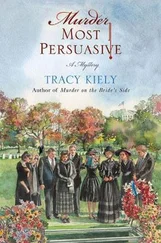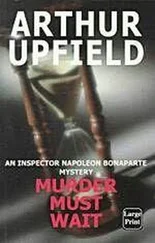“What’s going on?” asked Godin.
“An old woman who’s been done in. Down by the Rue Lecourbe.”
“Who did it?”
“There’s an invalid opposite who says he saw a small boy climbing up a drainpipe and along the top of a wall.”
“You mean to say it was a boy who killed the old woman?”
“We don’t know yet.”
No one was very interested. After all. murders were an everyday matter to these people. The lights were still on in the room, as it was still only a bleak, dull daylight that found its way through the frosty window panes. One of the new watch went and scratched a bit of the frost away. It was instinctive. A childish memory perhaps, like Sommer’s boudin .
The latter had gone home. So had Mambret. The newcomers settled down to their work, turning over the papers on their desks.
A car stolen from the Square la Bruyère.
Lecœur looked pensively at his seven crosses. Then, with a sigh, he got up and stood gazing at the immense street plan on the wall.
“Brushing up on your Paris?”
“I think I know it pretty well already. Something’s just struck me. There’s a chap wandering about smashing the glass of telephone pillars. Seven in the last hour and a half. He hasn’t been going in a straight line but zigzagging— first this way, then that.”
“Perhaps he doesn’t know Paris.”
“Or knows it only too well! Not once has he ventured within sight of a police station. If he’d gone straight, he’d have passed two or three. What’s more, he’s skirted all the main crossroads where there’d be likely to be a man on duty.” Lecœur pointed them out. “The only risk he took was in crossing the Pont Mirabeau, but if he wanted to cross the river he’d have run that risk at any of the bridges.”
“I expect he’s drunk,” said Godin, sipping his rum.
“What I want to know is why he’s stopped.”
“Perhaps he’s got home.”
“A man who’s down by the Quai de Javel at half past six in the morning isn’t likely to live near the Etoile.”
“Seems to interest you a lot.”
“It’s got me scared!”
“Go on.”
It was strange to see the worried expression on Lecœur’s face. He was notorious for his calmness and his most dramatic nights were coolly summarized by the little crosses in his notebook.
“Hallo! Javel? Is that Jules? Lecœur speaking. Look here, Jules, behind the flats in the Rue Michat is the little house where the invalid lives. Well, now, on one side of it is an apartment house, a red-brick building with a grocer’s shop on the ground floor. You know it?
“Good. Has anything happened there? Nothing reported. No, we’ve heard nothing here. All the same, I can’t explain why, but I think you ought to inquire.”
He was hot all at once. He stubbed out a half finished cigarette.
“Hallo! Ternes? Any alarms gone off in your neighborhood? Nothing? Only drunks? Is the patrouille cycliste out? Just leaving? Ask them to keep their eyes open for a young boy looking tired and very likely bleeding from the right hand. Lost? Not exactly that. I can’t explain now.”
His eyes went back to the street plan on the wall, in which no light went on for a good ten minutes, and then only for an accidental death in the Eighteenth Arrondissement, right up at the top of Montmartre, caused by an escape of gas.
Outside, in the cold streets of Paris, dark figures were hurrying home from the churches...
One of the sharpest impressions Andre Lecœur retained of his infancy was one of immobility. His world at that period was a large kitchen in Orleans, on the outskirts of the town. He must have spent his winters there, too, but he remembered it best flooded with sunlight, with the door wide open onto a little garden where hens clucked incessantly and rabbits nibbled lettuce leaves behind the wire netting of their hutches. But, if the door was open, its passage was barred to him by a little gate which his father had made one Sunday for that express purpose.
On weekdays, at half past eight, his father went off on his bicycle to the gas works at the other end of the town. His mother did the housework, doing the same things in the same order every day. Before making the beds, she put the bedclothes over the windowsill for an hour to air.
At ten o’clock, a little bell would ring in the street. That was the greengrocer, with his barrow, passing on his daily round. Twice a week at eleven, a bearded doctor came to see his little brother, who was constantly ill. Andre hardly ever saw the latter, as he wasn’t allowed into his room.
That was all, or so it seemed in retrospect. He had just time to play a bit and drink his milk, and there was his father home again for the midday meal.
If nothing had happened at home, lots had happened to him. He had been to read the meters in any number of houses and chatted with all sorts of people, about whom he would talk during dinner.
As for the afternoon, it slipped away quicker still, perhaps because he was made to sleep during the first part of it.
For his mother, apparently, the time passed just as quickly. Often had he heard her say with a sigh: “There, I’ve no sooner washed up after one meal than it’s time to start making another!”
Perhaps it wasn’t so very different now. Here in the Préfecture de Police the nights seemed long enough at the time, but at the end they seemed to have slipped by in no time, with nothing to show for them except for these columns of the little crosses in his notebook.
A few more lamps lit up. A few more incidents reported, including a collision between a car and a bus in the Rue de Clignancourt, and then once again it was Javel on the line.
It wasn’t Jules, however, but Gonesse, the detective who’d been to the scene of the crime. While there he had received Lecœur’s message suggesting something might have happened in the other house in the Rue Vasco de Gama. He had been to see.
“Is that you, Lecœur?” There was a queer note in his voice. Either irritation or suspicion.
Look here, what made you think of that house? Do you know the old woman. Madame Fayet?”
“I’ve never seen her, but I know all about her.”
What had finally come to pass that Christmas morning was something that Andre Lecœur had foreseen and perhaps dreaded for more than ten years. Again and again, as he stared at the huge plan of Paris, with its little lamps, he had said to himself, “It’s only a question of time. Sooner or later, it’ll be something that’s happened to someone I know.”
There’d been many a near miss, an accident in his own street or a crime in a house nearby. But, like thunder, it had approached only to recede once again into the distance.
This time it was a direct hit.
“Have you seen the concierge?” he asked. He could imagine the puzzled look on the detective’s face as he went on: Is the boy at home?”
And Gonesse muttered, “Oh? So you know him, too?”
“He’s my nephew. Weren’t you told his name was Lecœur?”
“Yes, but—”
“Never mind about that. Tell me what’s happened.”
“The boy’s not there.”
“What about his father?”
“He got home just after seven.”
“As usual. He does night work, too.”
“The concierge heard him go up to his flat—on the third floor at the back of the house.”
“I know it.”
“He came running down a minute or two later in a great state. To use her expression, he seemed out of his wits.”
“The boy had disappeared?”
“Yes. His father wanted to know if she’d seen him leave the house. She hadn’t. Then he asked if a telegram had been delivered.”
“Was there a telegram?”
“No. Can you make head or tail of it? Since you’re one of the family, you might be able to help us. Could you get someone to relieve you and come round here?”
Читать дальше












